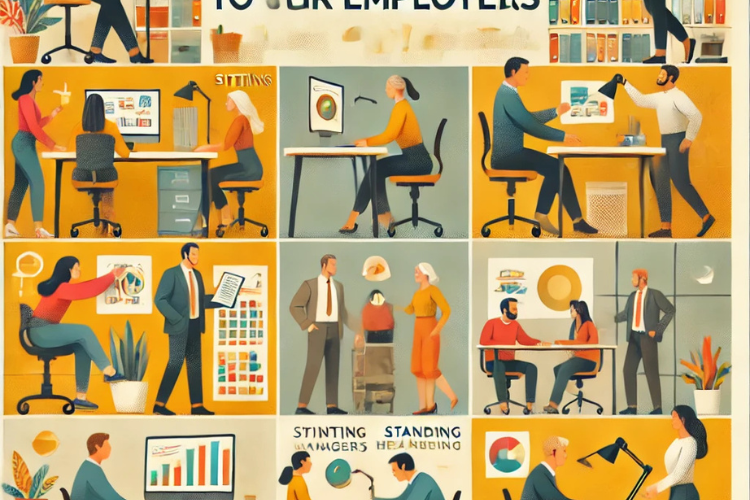Today, corporate policies around remote work are under scrutiny. Leading the conversation is Spotify’s CEO, Daniel Ek, with his bold statement: “Our employees are not children.” This comment, in direct contrast to Amazon’s strict return-to-office mandate, highlights two vastly different approaches to managing talent and driving innovation. While Spotify embraces a flexible, trust-based model, Amazon seems stuck in the past, clinging to outdated office policies.
So, why are companies like Spotify thriving with a “Work From Anywhere” policy, while others push employees back into office spaces? Let’s break it down.
1. Spotify’s Revolutionary Trust-Based Model
Spotify’s approach to remote work is simple: trust your employees. Daniel Ek’s declaration that employees aren’t children reflects the company’s core belief in autonomy. By allowing employees to work from anywhere, Spotify fosters an environment of trust, accountability, and productivity.
Research backs this up. A study by Stanford found that employees working remotely were 13% more productive than their in-office counterparts. When people have the freedom to choose where they work best, they often deliver better results. Spotify understands this, and it’s reflected in both their policies and their success.
2. Productivity and Revenue Growth: The Remote Work Advantage
Spotify isn’t just betting on trust; it’s seeing real returns. Companies that adopt flexible work models are outperforming their peers in terms of revenue growth. According to Apollo Technical, remote work-friendly companies see faster revenue growth. Happy, productive employees naturally lead to higher profits.
In contrast, companies pushing for a full return to the office are missing out. Bloomberg reported that remote-friendly businesses experience greater financial success, thanks in part to reduced overhead costs and a more engaged workforce. It’s clear: flexibility isn’t just good for employees—it’s great for business.
3. Amazon’s Return-to-Office Mandate: A Step Backward?
Amazon, on the other hand, has doubled down on its return-to-office mandate, requiring employees to come in at least three days a week. The rationale? Better collaboration. But in a world where technology enables seamless remote collaboration, this approach feels outdated.
The pandemic changed the way we work, and many companies have embraced that shift. Tools like Slack, Zoom, and GitHub have made remote teamwork not only possible but highly efficient. By insisting that collaboration happens best in person, Amazon risks alienating employees and stifling innovation.
4. Hiring the Best Talent: Spotify’s Geographic Freedom
One of the greatest advantages of a remote-first model is access to a global talent pool. Spotify’s “Work From Anywhere” policy means they can hire the best developers, designers, and engineers from anywhere in the world, whether that’s Silicon Valley or a small town in Norway. There are no geographic limitations.
Amazon, however, restricts itself to hiring talent that can commute to specific office locations. In today’s globalized world, this is a huge disadvantage. Limiting the talent pool to specific cities means missing out on incredible talent that prefers flexibility. By contrast, Spotify’s open hiring approach is a game-changer in attracting top-tier professionals.
5. Treating Employees Like Adults: A Modern Leadership Mindset
The belief that employees need constant supervision is a relic of the past. Modern, forward-thinking companies like Spotify understand that employees are adults. They don’t need to be confined to a desk or micromanaged to do great work. When trusted, people take ownership of their tasks and deliver better results.
Daniel Ek’s statement, “Our employees are not children,” drives home the idea that responsible professionals don’t need to be babysat. By offering freedom and flexibility, Spotify cultivates a culture where employees feel valued and empowered.
6. Flexibility as a Driver of Innovation
Innovation thrives in environments where employees are given room to breathe. Spotify’s remote work model encourages creativity by removing the physical and mental constraints of an office. Employees can work from their ideal environments, be it a home office, a café, or a beach.

Amazon’s rigid office policies, on the other hand, may stifle creativity. Employees bound by strict office routines are less likely to think outside the box. The freedom to choose where to work leads to more innovative ideas and approaches—something Spotify fully understands.
7. Remote Work and Higher Job Satisfaction
There’s a clear link between remote work and job satisfaction. Studies consistently show that employees who work remotely report higher levels of job satisfaction. The flexibility to balance personal and professional life leads to happier, more engaged employees.
According to a report from Fast Company, Spotify’s HR Chief has emphasized that their Work From Anywhere policy has led to lower attrition rates and higher overall employee satisfaction. In contrast, Amazon employees have expressed concerns over burnout and frustration with the company’s return-to-office policy.
8. Tech-Enabled Seamless Collaboration
One of the main arguments for returning to the office is the idea that collaboration is easier in person. However, with modern technology, remote collaboration is more effective than ever. Tools like Slack and Zoom make it easy for teams to communicate in real time, regardless of location.
Spotify leverages this technology to maintain smooth, productive teamwork across its global workforce. The ability to collaborate effectively from anywhere is crucial in today’s tech-driven world, and Spotify has mastered this approach. Amazon’s insistence on in-office collaboration seems out of touch with the realities of modern work.
9. Stanford’s Productivity Insights: Remote Workers Perform Better
That Stanford study we mentioned earlier? It’s worth a deeper dive. Researchers found that not only were remote workers more productive, but they also took fewer sick days and had higher levels of job satisfaction. Spotify has recognized the connection between flexibility and productivity, and they’re reaping the rewards.
Amazon’s approach, which assumes productivity only happens in the office, is flawed. The reality is that many employees perform better when given the freedom to choose their work environment. Spotify has embraced this shift, while Amazon seems to be resisting it.
10. Remote Work Saves Money for Companies
Let’s not forget the financial benefits of remote work. By reducing the need for large office spaces, companies can save significant amounts of money. Spotify has already begun scaling back on office space and reinvesting those savings into innovation and growth.
Amazon, on the other hand, continues to pour money into maintaining expensive office spaces. In a time when remote work is proving to be both productive and cost-effective, this seems like a missed opportunity. Spotify’s decision to invest in innovation rather than real estate is a smart financial move that pays off.
11. The Future of Work: Flexibility Over Rigidity
The future of work isn’t about forcing everyone to either stay at home or return to the office. It’s about offering flexibility. Some people thrive in an office setting, while others do their best work remotely. The companies that understand this are the ones leading the way.
Spotify’s flexible model allows employees to choose what works best for them. This kind of adaptability is what sets innovative companies apart from the rest. By offering a choice, Spotify creates a work environment that fosters creativity, productivity, and satisfaction.
12. Great Companies Adapt to Their Employees
At the end of the day, the best companies are those that adapt to the needs of their employees, not the other way around. Whether employees prefer the camaraderie of the office or the focus of working remotely, providing options is the key to keeping them engaged.

Amazon could learn from Spotify’s approach. Instead of rigid mandates, why not offer flexibility? The companies that listen to their employees and adapt will be the ones that thrive in the future of work.
Final Thoughts: The Power of Flexibility
Spotify has shown that trusting employees and offering flexibility isn’t just good for morale—it’s great for business. As we move forward, companies that understand this will continue to lead the way in innovation and talent retention.
What are your thoughts on remote work versus return-to-office policies? Leave a comment, like, and subscribe! And if your business needs help optimizing operations, visit StartupHakk.com to learn more about how we can help you run like a well-oiled machine.




